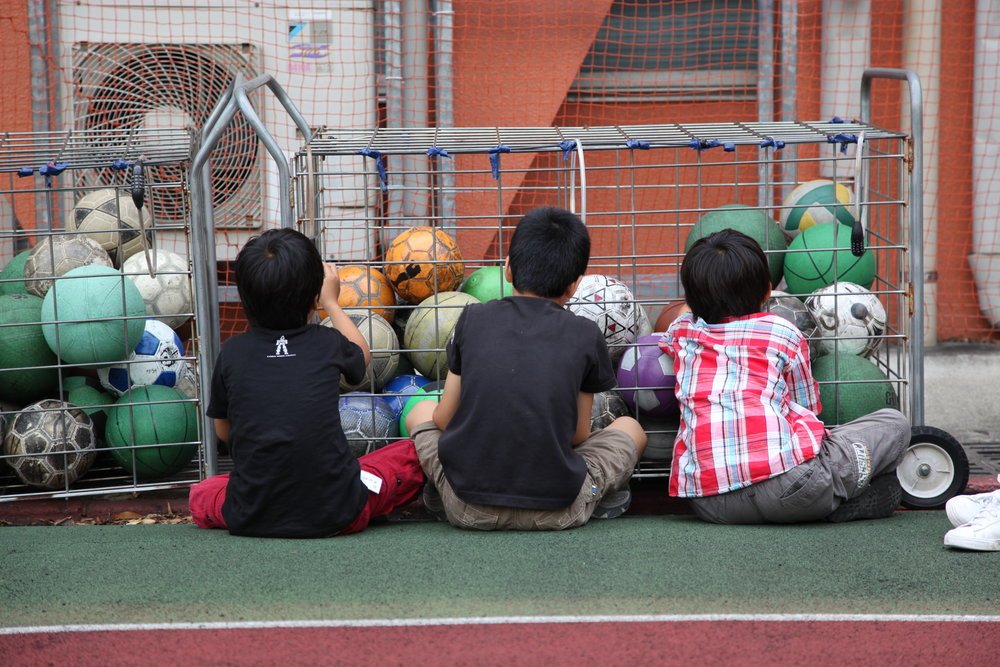Why Our Work Matters
Children around the world deserve the best possible chance at a successful adult life, many, however, due to poverty and being institutionalised, do not have this.
The Situation
As of 2014, over 39,000 children lived in various alternative care settings in Japan, including infant care institutions, child care institutions, short-term therapeutic institutions, group homes for independent living, and foster care and family homes.(Human Rights Watch, 2014)
Foster care placements are relatively low, with only about 12% of children in care placed with foster families. This rate is significantly lower compared to countries like Australia (93.5%) and the United States (77%). (The Borgen Project, 2022)
Educational Challenges
Institutionalization vs. Family Environment: Children who grow up in institutional care often miss the stability and emotional support of a family environment, which can affect their emotional development and mental health. This can make it more difficult for them to focus on academics or perform at their best in school.
Drop-Out Rate: One study reports a high school dropout rate of 19.3% for youth in residential care versus 1.4% for the general population, with admissions during junior high further increasing dropout risk, (Ozawa and Hirata, 2019). An assessment using the KINDL questionnaire found that elementary‐aged children in care record lower overall quality of life—especially in emotional and family domains—than their counterparts raised in traditional families. (Nakatomi et al, 2018)
Social Stigma: Children in care may face stigma from their peers, which can lead to feelings of isolation or a lack of self-esteem. This can affect their academic motivation and performance.
Lack of Personal Support: Without strong family ties, many children in care lack a supportive figure to help with their schoolwork, navigate the education system, and provide emotional encouragement. While there are efforts to provide this support in group homes and institutions, it's not always the same as having a dedicated family member involved in their education.
Transition to Independant Living
Limited Access to Higher Education: Many children in care in Japan face difficulties transitioning from high school to higher education. Financial challenges can be a barrier, as children in care may not have the familial support to apply for scholarships or manage the costs associated with attending university. Some children can receive support from the government, but the process can be complex. Nishimoto et al. (2020) reported that students from Child Care Institutions (CCIs) face unique challenges in university life, including:
Financial difficulties
Struggles in building social relationships
Diminished support from CCI staff after university entry
Nagano (2024) reports that only 2% of foster care youth graduate from university
Lack of Career Guidance: The absence of a family figure to guide career choices can leave children in care less prepared to make informed decisions about their futures. Many children in care do not have the opportunity to explore a wide range of career options, which can limit their aspirations and potential.
Early Entry into the Workforce: Some children may enter the workforce earlier to support themselves, often taking low-paying jobs with little chance for advancement. This can limit their long-term career prospects, especially if they haven't had access to higher education or job training opportunities. In addition, the transitions to independence are best described as contracted and abrupt. (Tim et al, 2017)
Long-Term Outcomes
Educational Attainment: Children in care tend to have lower educational outcomes than their peers raised in families. This can be due to a combination of factors, including lower academic performance in school, fewer opportunities for enrichment, and emotional struggles.
Career Success: The long-term career success of children in care can be limited by the factors above, particularly when they don’t have a strong support network, financial resources, or access to higher education. However, with appropriate support and interventions, children in care can overcome these challenges and succeed in their careers.



